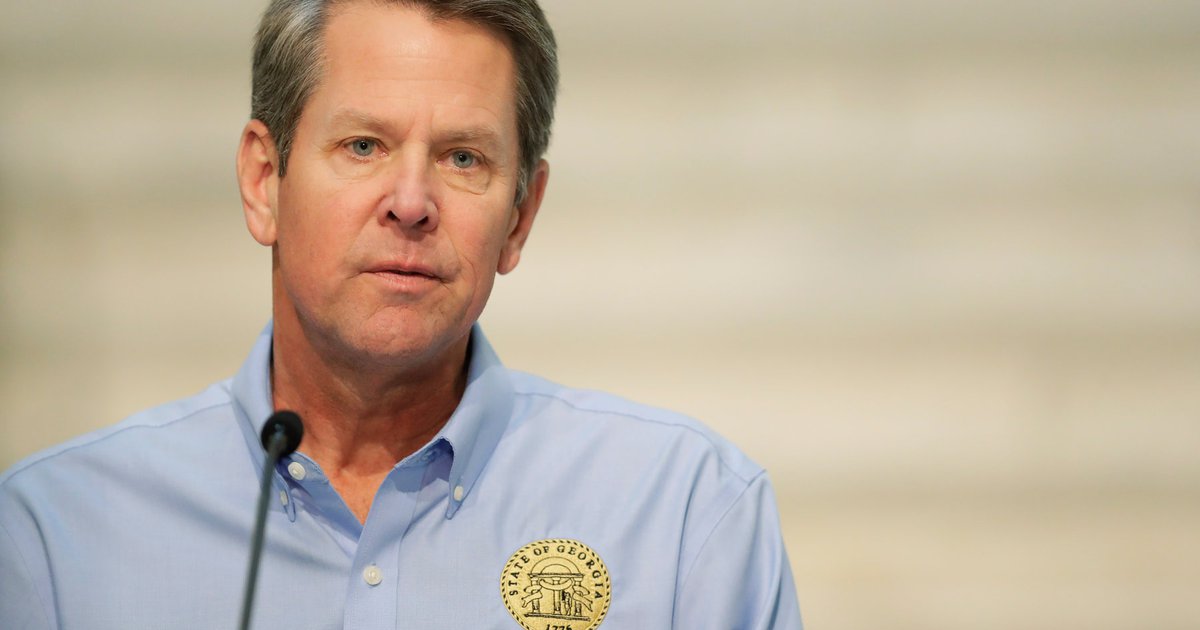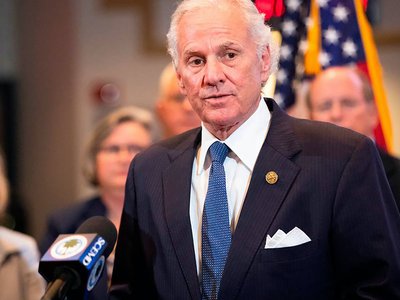Per The Atlanta Journal-Constitution:
A majority of Georgia voters said Major League Baseball struck out when it yanked its All-Star game out of metro Atlanta in protest of the state’s new election law, according to an Atlanta Journal-Constitution poll that found little other consensus around the changes.
The poll, conducted by the University of Georgia, found roughly 54% of registered Georgia voters opposed the April decision to move the event to Denver after the passage of a Republican-backed overhaul that includes new restrictions on voting.
On a similar note, it concluded that about 60% of Georgians opposed companies using their public role to shape political opinion or promote cultural change, including 86% of Republicans and 55% of independent voters. About 56% of Democrats support such corporate activism.
The poll’s findings reflected the backlash against baseball’s decision, which Republicans have criticized as “cancel culture.” Republican U.S. House Minority Leader Kevin McCarthy visited Georgia on Tuesday to blast Major League Baseball as he called for an end to the “movement in this country about wokeness.”
It also served as a message to Coca-Cola and Delta Air Lines, two Atlanta-based corporate giants that sharply criticized the voting changes after Gov. Brian Kemp signed them into law. Though a slim overall majority of Georgians had favorable impressions of both companies, Republicans were evenly split over Delta and 55% of GOP voters had a dim view of Coke.
“It should be like the queen — they should be neutral because they have employees who feel both ways,” said Sheryl Hudson, an executive assistant from Forsyth County. “The top brass shouldn’t decide how their employees feel.”
Angela Meltzer, a semi-retired forensic accountant from Athens, is in the minority.
“Companies should be involved. They make money off the people in this state,” she said. “They should be conscious of what public policy is trying to do.”
The AJC poll involved 844 registered voters and was conducted April 20-May 3 by UGA’s School of Public and International Affairs. The margin of error is 3.4 percentage points.
A sharp split
The survey offered a reminder that few issues in Georgia are as polarizing as the ongoing clash over voting rights, which dominated the race for governor in 2018 and the 2020 election as then-President Donald Trump falsely claimed widespread fraud in Georgia led to his narrow defeat.
Georgians are evenly divided on the state’s election rewrite, which includes new ID requirements for absentee ballots, a tighter window for when mail-in ballots can be accepted and limits on accessibility to ballot drop boxes that gained popularity during the coronavirus pandemic.
The rewrite was motivated in part by Trump’s claims about last year’s election results, when Joe Biden became the first Democratic presidential contender to win Georgia since 1992. Election officials have said repeatedly there’s no evidence of widespread fraud in those contests, and three separate tallies upheld Biden’s win.
About 46% of Georgia voters approved of the overhaul, compared with 44% who opposed it — within the poll’s margin of error. A deeper glance showed a steep partisan divide: Roughly 80% of Republicans backed the new law, while three-quarters of Democrats disapproved.
Illustrating the division, about 42% of voters said the overhaul “somewhat” or “greatly” increases their confidence in the system, while 45% said the opposite. Republican leaders who pushed the overhaul said that restoring voter confidence was a major goal and they appear to have succeeded with their voters. Among Republican voters, 73% said the voting law increased their confidence and about 23% said it either had no effect or decreased their confidence.
When asked whether voters think the new law makes it harder for voters to cast ballots in future elections, Georgians were also split down the middle, with about three-quarters of Democrats indicating it would present obstacles to the ballot box while the same number of Republicans said it wouldn’t.
Likewise, voters were divided along party lines about the motivation behind the changes, with 46% of Georgians saying it was meant to “increase voter confidence” and 47% who said it was aimed at making it “more difficult for certain groups to vote.”
“I don’t see how anybody can not look at it and see it is a clear effort to stop Black and brown people from voting,” said Christopher Macken, a Midtown Atlanta voter who once considered himself a Republican before Trump’s election pushed him to vote for Democrats.
Edward Thebo, a retired police officer who lives on Skidaway Island, had precisely the opposite view.
“In the long run it’s an improvement, there’s no question about it,” he said, adding: “In the short run, there’s hate.”
‘Consequences’
Some of the sharpest reactions, however, came in response to the two Georgia-based Fortune 500 firms that assailed the voting law, triggering threats of boycotts and counterboycotts.
About 54% of registered voters had a favorable impression of Delta Air Lines, the state’s largest private employer, compared with roughly one-quarter who did not. The latter figure includes roughly 40% of Republicans.
Coca-Cola fared worse. About 51% of Georgians had a positive view of one of the state’s most iconic companies, including only one-third of Republicans. And only 47% of Georgia voters had a positive impression of Major League Baseball, including just 25% of Republicans.
“It was ridiculous. My husband has quit watching baseball because of it,” Hudson, the executive assistant from Forsyth County, said of the decision to move the game. Of the new voting law, she said: “I don’t look at it as racist. I look at it as another way for people to feel more comfortable with how the vote went.”
Dean Duggan of Cumming understands the backlash targeting baseball, particularly given that small businesses that could have used the economic jolt are missing out. But Duggan, who works in legal services, said what MLB did “needed to be done” to send a message heard across the nation.
“It shows leadership that there are consequences for the actions they take, like the voting law,” he said.






